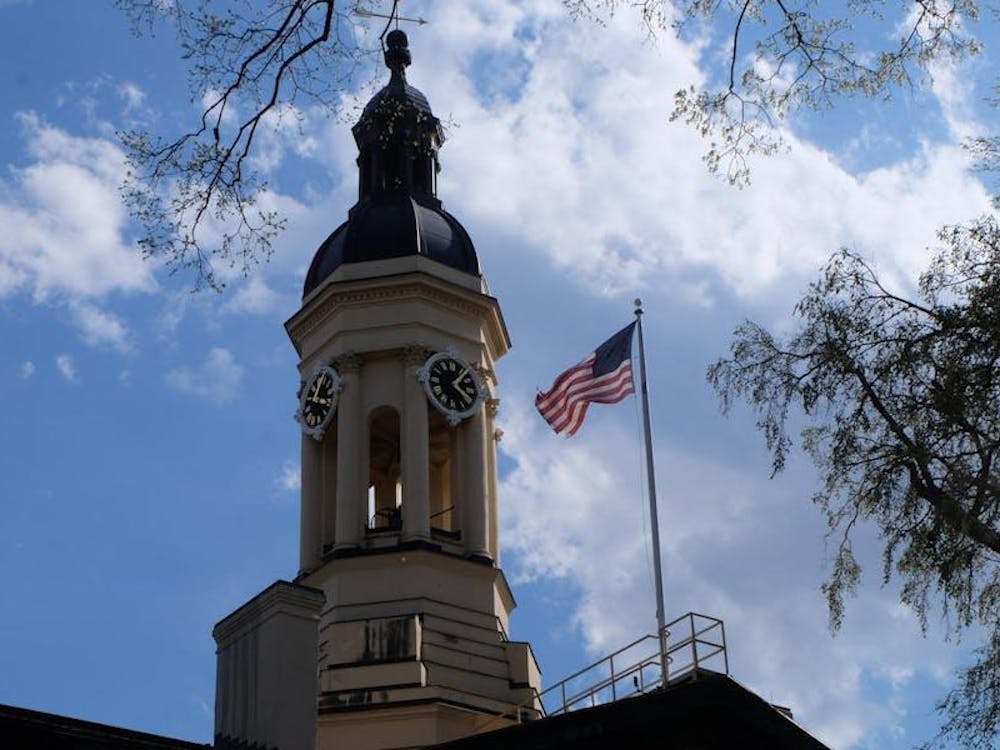If the University approves the Wythes committee's proposal to create a sixth residential college, future undergraduates may be calling the current location of the Graduate College home.
The Graduate College is one of several possibilities the University has named as feasible locations for a sixth residential college to accommodate the Wythes committee's proposed 10-percent increase in the size of the undergraduate student body.
Other possible locations for the sixth residential college include the "shallow ellipse" near Scully Hall, the space south of Dillon Gym and the area north of Forbes College, according to Amy Floresta, project manager at KieranTimberlake Associates, the architecture firm charged with planning for the new residential college.
According to University physical planning director Jon Hlafter '61, the Graduate College is "a ready-made [residential] college," and would be relatively easy and efficient to convert into undergraduate housing.
President Shapiro called the option of converting the facility into a residential college "a wild possibility," but also said the administration will "look at all possibilities, including the grad college."
Vice President for Finance and Administration Richard Spies '72 agreed that University officials were considering the Graduate College as a potential site for the residential college.
"The fact that it is already built in the form of a residential college makes it very appealing," he said. "There have been questions for years whether it's actually good housing for graduate students, but many graduate students think it is."
Floresta said her architecture firm is working with University and residential college administrators, as well as students, to determine the ideal characteristics of a future residential college.

The Graduate College has "the common areas, the courtyards and the physical spaces internally and externally that a residential college would have," Floresta said, adding that the facility also provides the "Gothic experience" that students want.
One major disadvantage to converting the Graduate College into a residential college, according to Floresta, is that the graduate students currently living there would be displaced.
Graduate Students for Local Activism president Karthick Ramakrishnan GS said he is concerned that converting the Graduate College into housing for undergraduates could mean a decline in the quality of graduate student life.
"The grad college has had full occupancy for the past couple of years," Ramakrishnan said, adding that the dormitory space is especially important for single graduate students.

"One of the great things about the grad school is that there is a variety of housing options," he said. "The grad college is for people who want the dorm college experience."
Hlafter said "it would be essential for the University to try to find an alternate solution" for the graduate students currently living at the Graduate College, which he said presently functions as a center for graduate student life. He added, however, that he could not predict the type of housing that would replace the current facility.
Shapiro said that if the Graduate College were converted into a residential college, "part of the plan would be to replace it with something better."
One concern for many undergraduates about converting the Graduate College is the distance between the college and the center of campus. "Everyone we have spoken to has said that the location would be too far away," Floresta said. "The walking distance from the grad college to the E-Quad is a good 25-30 minutes."
Spies agreed that the location of the Graduate College could be problematic. "It's farther away than any other facility we have for undergraduates right now," he said.
Public Safety Crime Prevention Specialist Barry Weiser said it is difficult to predict the effect that the possible location of the new residential college would have on Public Safety resources, but added, "Of course, we already patrol the grad college now."
All details of the new residential college must be considered before Public Safety can decide how to accommodate them, according to Weiser. "We will study whether or not new resources would be necessary — personnel, vehicles, shuttles."
The possibility of a new shuttle system to transport undergraduates between the new residential college and other campus locations frustrates graduate students who have previously lobbied for daytime shuttles. "The grad college has been pushing for daytime shuttles for the past couple of years and has been ignored," Ramakrishnan said.
Ramakrishnan described the suggestion as further evidence that graduate students "are treated like second-class citizens. Our opinion does not matter on issues that greatly affect us."
Discussions about the sixth college's location are still preliminary and speculative, Floresta said. She added that before any final recommendations are made, "we want to discuss many different ideas and see the reaction from the campus."
Shapiro said the administration plans to announce its recommendations regarding the proposed sixth residential college in April.







